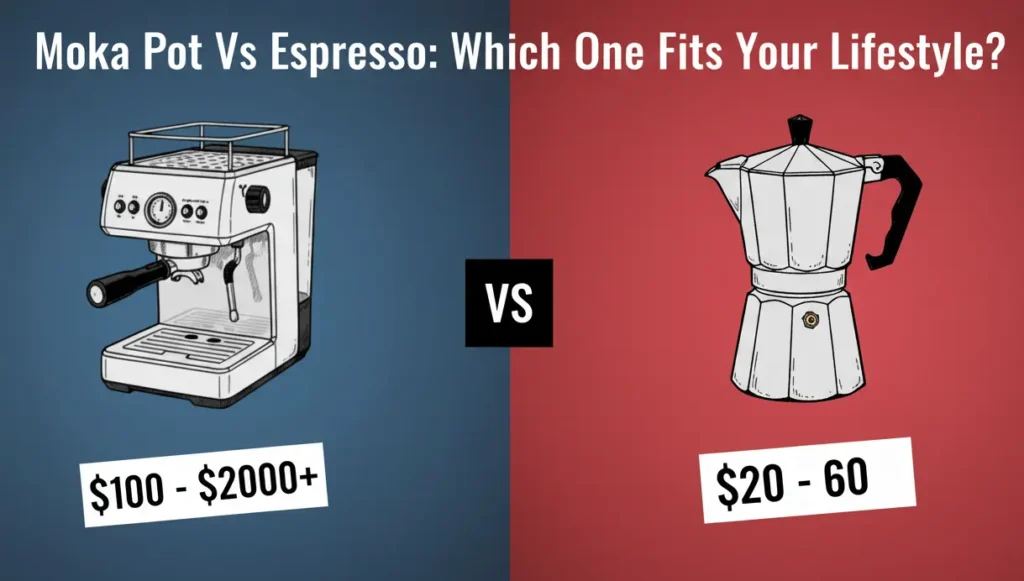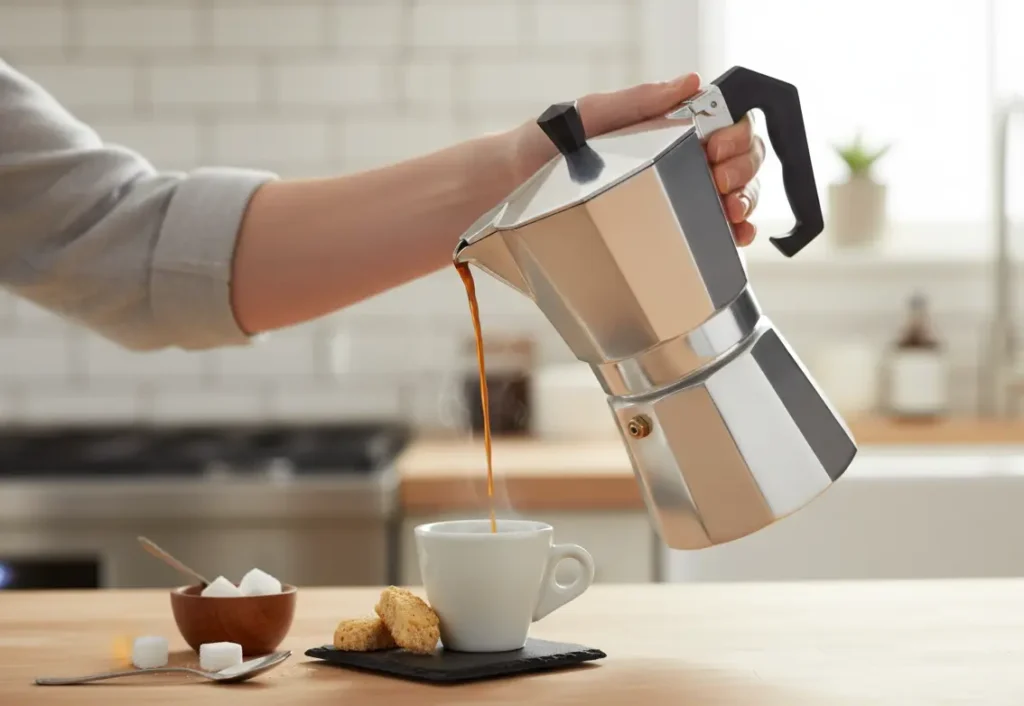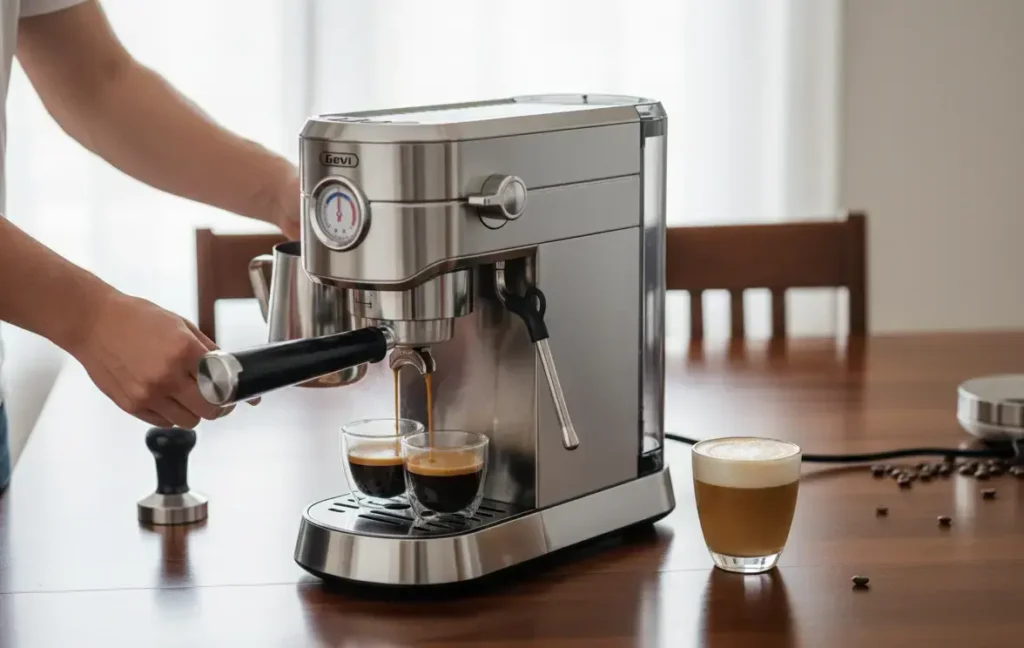Have you ever taken a sip of your coffee, expecting that smooth, rich flavor, only to be hit with a sharp, bitter taste? It’s frustrating when your morning pick-me-up doesn’t taste right.
But why does your coffee taste bitter all of a sudden? The truth is, bitterness can sneak into your cup for several reasons—from dirty equipment to brewing mistakes, or even changes in your beans and water. The good news? You don’t have to settle for bitter coffee.
Keep reading to discover the common causes and simple fixes that will help you enjoy a perfect, balanced cup every time. Your best brew is just a few tweaks away.
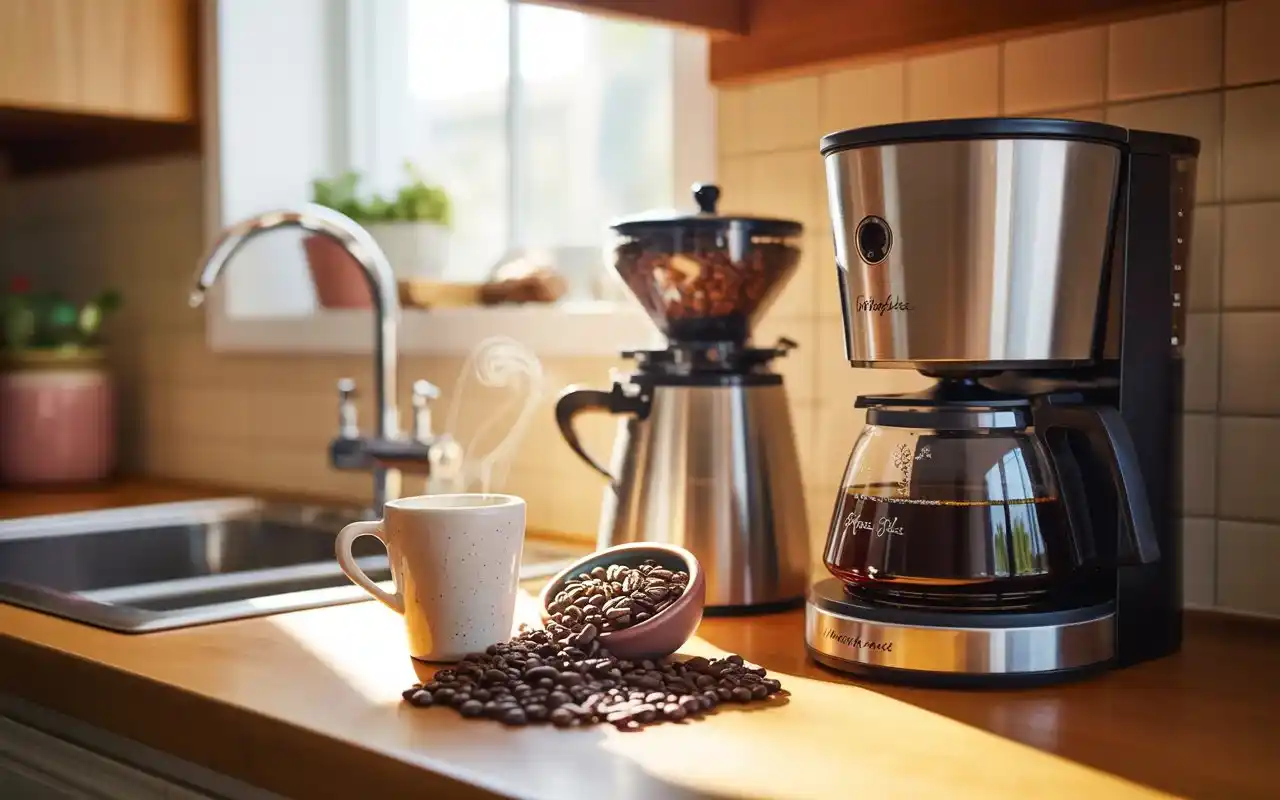
What Does Bitterness in Coffee Actually Mean?
Bitterness in coffee isn’t always bad. A little adds balance and depth. But too much makes your cup taste harsh and dry.
Bitterness comes from caffeine and natural acids in coffee. When brewed right, they create rich flavor. When over-brewed, they release sharp, unpleasant notes.
I once brewed my coffee too long and thought it’d taste stronger. Instead, it turned bitter and lost its smooth feel. That’s when I learned coffee needs balance, not extra time.
Bitterness usually means the brew went too far—maybe the water was too hot, the grind too fine, or the beans too dark. Fixing one small step can make your coffee smooth and enjoyable again.
Why Does My Coffee Taste Bitter?
Bitter coffee ruins the joy of your morning cup. Many factors cause this unpleasant taste. Understanding these helps you brew better coffee. Here are the common reasons your coffee tastes bitter.
1. Dirty Coffee Equipment
Old coffee oils build up on grinders and brewers. This residue turns rancid and tastes bitter. Regular cleaning removes these oils and prevents bitterness. Clean your carafes, filters, and machines often.
2. Over-Extraction
Over-extraction means brewing too long or using too fine a grind. Water pulls bitter compounds from coffee grounds. This creates a harsh, bitter flavor. Shorten your brew time or use a coarser grind to fix this.
3. Brewing with Too-Hot Water
Water that is too hot burns coffee grounds. Boiling water extracts bitter flavors quickly. Let water cool to around 195-205°F before brewing. This temperature range makes a smooth, balanced cup.
4. Wrong Grind Size
Grind size affects how water flows through coffee. Too fine a grind causes slow water flow and bitterness. A coarse grind lets water extract just the right flavors. Adjust grind size to suit your brewing method.
5. Poor Water Quality
Water contains minerals and chemicals that affect coffee taste. Hard water can add bitterness or dull flavors. Using filtered or bottled water improves taste. Test different water sources to find the best one.
6. Low-Quality or Stale Coffee Bean
Dark roasts naturally taste more bitter than light roasts. Robusta beans often have a stronger, bitter flavor. Old or stale beans lose sweetness and taste harsh. Use fresh, well-roasted beans for better coffee.
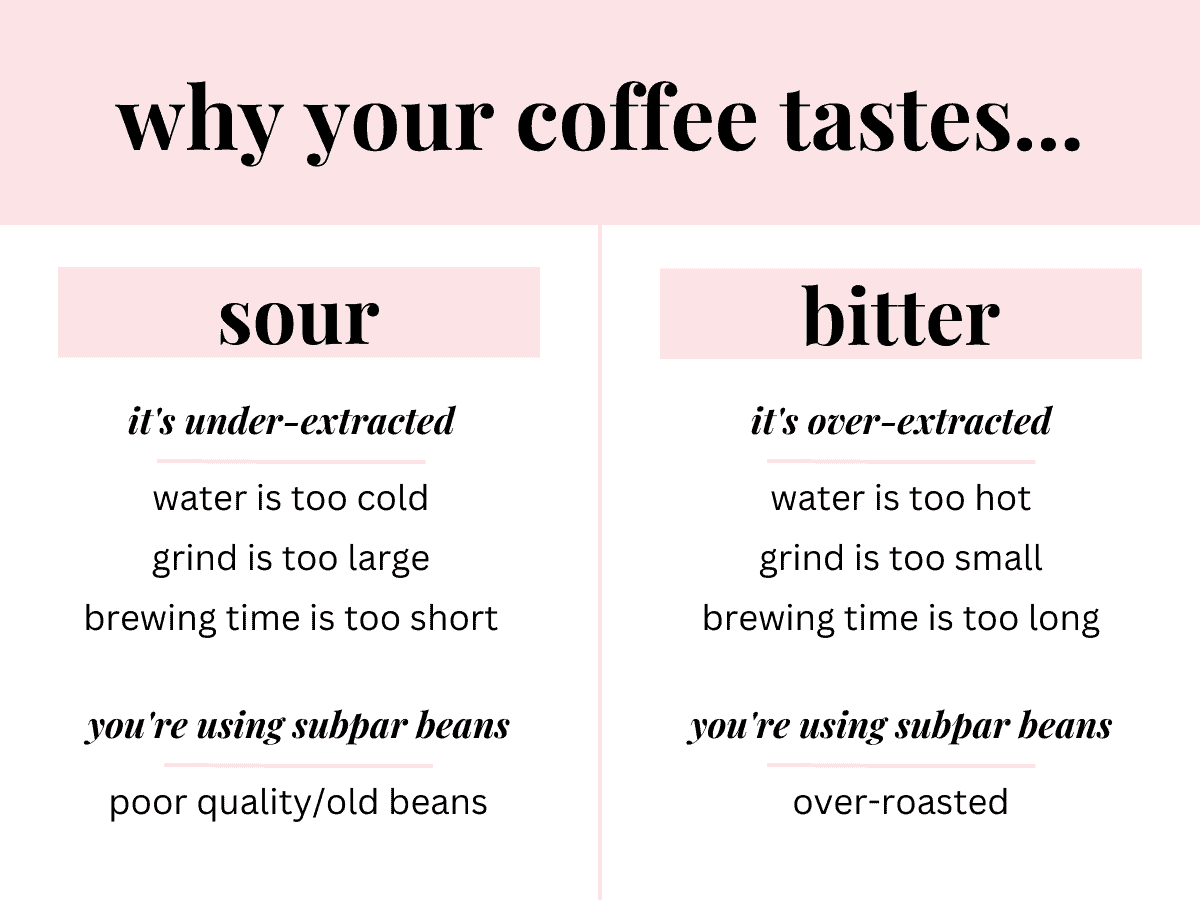
Credit: www.fooduzzi.com
How to Clean Coffee Equipment to Prevent Bitter Taste
Cleaning your coffee equipment helps improve the taste of your coffee. Old coffee oils and residue build up over time. These residues can make your coffee taste bitter or stale. Regular cleaning removes these unwanted flavors. It also keeps your coffee machine working well. Clean equipment ensures every cup tastes fresh and smooth.
Step 1: Remove Old Coffee Oils That Cause Bitterness
Coffee oils stick to your grinder and brewer parts. These oils turn rancid and cause bitterness. Use a mild detergent or special coffee cleaner. Wipe or soak parts to remove oily buildup. Clean parts dry before use. Removing oils stops old flavors from mixing with fresh coffee.
Step 2: Deep Clean Your Coffee Grinder and Brewer Regularly
Grinders collect coffee dust and oils inside. Brewer baskets and shower heads get clogged with residue. Clean grinders by brushing or running cleaning pellets. Disassemble brewer parts and wash them with warm water. Regular cleaning prevents bitter tastes caused by leftover coffee grounds and oils. It also helps your machine brew evenly.
Step 3: Maintain Coffee Carafes and Pots for Fresh-Tasting Brews
Carafes and pots hold brewed coffee and collect stains. These stains can change your coffee’s taste. Wash them with warm soapy water after each use. Use a soft cloth or sponge to avoid scratches. Occasionally, use vinegar or baking soda to remove stubborn stains. Clean pots keep your coffee tasting pure and fresh.
How Grind Size and Brew Time Affect Coffee Bitterness
Adjusting grind size and brew time plays a key role in controlling coffee bitterness. The balance between these factors affects how flavors develop during brewing. Over-extraction occurs when the water pulls too many bitter compounds from the coffee grounds. Modifying grind size and brew duration helps prevent this unwanted taste. Experimenting with these adjustments can improve your coffee’s smoothness and flavor.
Choose the Right Grind Size for a Smoother, Less Bitter Coffee
The grind size influences how fast water extracts flavors from coffee. A grind that is too fine increases surface area, causing over-extraction and bitterness. Coarser grounds slow extraction, reducing bitter notes and highlighting sweeter flavors. Match grind size to your brewing method for best results. For example, use coarse grounds for French press and medium for drip coffee makers. Adjust gradually until bitterness decreases.
Shorten Brew Time to Reduce Over-Extraction
Brew time controls how long water contacts coffee grounds. Long brew times extract more bitter compounds, especially with fine grinds. Shortening brew duration reduces over-extraction and bitterness. If using a manual method like pour-over, try stopping the brew a little earlier. For automatic machines, check if brewing time can be adjusted. Aim for a balanced taste with less harshness.
Managing Water Temperature And Quality
Water temperature and quality play a big role in the taste of your coffee. If water is too hot, it extracts bitter compounds from the coffee grounds. Poor water quality can add unwanted flavors, making coffee taste harsh or dull. Managing these two factors helps create a smoother, balanced cup.
Use the Right Brewing Temperature
Water should be between 195°F and 205°F for best results. Boiling water (212°F) is too hot and burns the coffee grounds. Let boiled water rest for about 30 seconds before pouring. This small step stops over-extraction and bitterness.
Using water that is too cool leads to weak, sour coffee. Keeping the temperature steady during brewing ensures consistent flavor. A temperature-controlled kettle can help maintain the right heat.
Use Filtered Water for Cleaner, Smoother Coffee Taste
Tap water often contains minerals and chemicals that change coffee’s taste. Chlorine, for example, can give coffee a sharp, unpleasant flavor. Filtering water removes these impurities for a cleaner taste.
According to the Specialty Coffee Association (SCA), minerals like calcium, magnesium, and hydrogen carbonate in water affect coffee’s flavor balance. When water is too hard, it can make your brew taste unbalanced, bitter, or flat.
Filtering water removes these impurities for a cleaner taste. Soft water with low mineral content is best for brewing. It allows the true coffee flavors to shine through. Try using a home water filter or bottled filtered water to see the difference.
How to Balance Coffee Flavors (Bitterness vs Sweetness vs Acidity)
Coffee tastes best when its flavors work in harmony. Bitterness adds depth, sweetness brings comfort, and acidity adds brightness. When one flavor dominates, the balance feels off.
From my own brews, I’ve learned small changes matter. Using medium roasts, cooler water, or shorter brew time softens bitterness and brings sweetness forward. Filtered water keeps flavors clean and clear.
A balanced cup feels smooth, bright, and satisfying—each flavor shining gently, never fighting for attention.
Selecting And Storing Coffee Beans
Selecting and storing coffee beans greatly impacts your coffee’s taste. Bitter flavors often come from poor choices or improper storage. Choosing the right beans and keeping them fresh prevents bitterness. Understanding freshness and roast levels helps make better decisions. Proper storage keeps beans flavorful longer.
Choose Fresh Beans and the Right Roast Level
Fresh coffee beans produce a smooth, balanced taste. Beans start to lose flavor soon after roasting. Dark roasts tend to be more bitter than light or medium roasts. Lighter roasts keep more natural sweetness and acidity. Choosing a roast that suits your taste reduces bitterness. Always check the roast date on the package.
Avoid Stale Coffee Beans
Stale beans taste flat or bitter. Oxygen, heat, and moisture cause beans to go bad. Store beans in an airtight container away from light. Avoid keeping beans in the fridge or freezer. Buy only what you can use in two weeks. Grinding beans just before brewing preserves flavor and freshness.
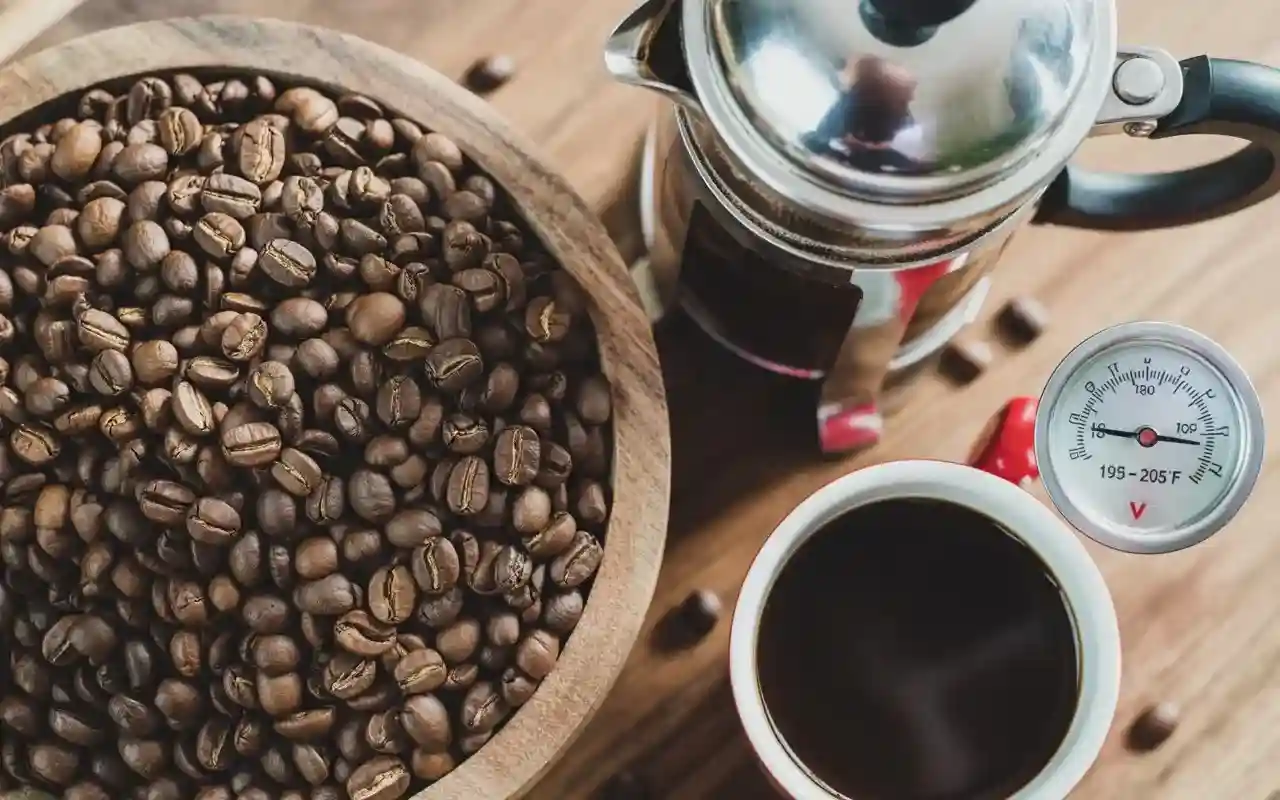
How Do I Make Coffee Less Bitter
Bitter coffee can ruin your morning mood. Quick fixes help you enjoy a smoother cup fast. These simple changes often solve the bitterness problem without wasting coffee or time. Small tweaks in your brewing method can make a big difference. Follow these steps to improve your coffee taste today.
Step-by-step Brewing Adjustments
Start by cleaning all your coffee equipment. Old oils cause bitter flavors. Rinse grinders, brewers, and pots thoroughly.
Next, check your grind size. Use a coarser grind to avoid over-extraction. Finer grounds pull more bitter compounds from coffee.
Control your water temperature. Let boiling water cool for 30 seconds before pouring. Hotter water burns coffee and increases bitterness.
Shorten your brew time. Brew for less time to reduce bitter extraction. Experiment by reducing steep time by 30 seconds.
Testing Different Variables
Try filtered or bottled water. Tap water minerals can affect taste and cause bitterness. Switching water sources may help.
Test different coffee beans. Dark roasts or stale beans taste bitter. Use fresh, medium roast beans for a sweeter cup.
Adjust one variable at a time. Change grind size first, then water temperature next. This helps find the exact cause.
Keep notes on each change. Record taste results to track what improves or worsens your coffee.
Frequently Asked Questions
Why Does Coffee Taste Bitter To Me All Of A Sudden?
Coffee tastes bitter suddenly due to dirty equipment, over-extraction, too-hot water, fine grind, stale beans, or water quality changes. Clean your gear, use coarser grounds, cooler water, shorter brew time, fresh beans, and filtered water to fix bitterness.
How To Adjust Grind If Coffee Is Bitter?
Make your grind coarser to reduce bitterness. Coarser grounds lower over-extraction and prevent bitter flavors. Adjust gradually for best taste.
Is Good Coffee Supposed To Taste Bitter?
Good coffee should have balanced bitterness, not overpowering. Excessive bitterness often means over-extraction, too hot water, or stale beans. Clean equipment and proper brewing improve taste.
Why Does Everything Taste Bitter To Me All Of A Sudden?
A sudden bitter taste often results from dirty equipment, over-extraction, too-hot water, or stale coffee beans. Clean gear, adjust grind size, lower water temperature, and use fresh beans to improve flavor.
Final Thoughts: How to Prevent Bitter Coffee for a Perfect Brew Every Time
Bitter coffee often comes from simple, fixable causes. Clean your equipment regularly to remove old oils. Use a coarser grind to avoid over-extraction. Let the water cool slightly before brewing. Shorten brewing time to prevent harsh flavors. Try fresh beans and check their roast level.
Filtered water can improve taste. Small changes make a big difference. Enjoy your coffee without bitterness again!

Hi, I’m Joshua Miller, a U.S.-based food lover, review writer, and Co-founder of KitchenWink.com. I hold a Bachelor of Science in Food Science and Culinary Technology, and for over five years I’ve been testing kitchen gadgets like air fryers, blenders, and other cooking tools.
I’m also a home cook, so every product I review is tried in real kitchens—not just in theory. My reviews are based on real results, simple fixes, and tips that anyone can use. With both formal training and hands-on testing, I make sure my advice is clear, honest, and practical.
My goal is simple: to help home cooks choose the right tools and make cooking easier every day.

